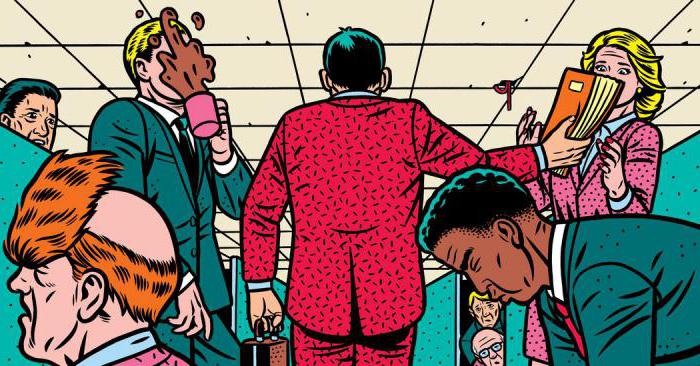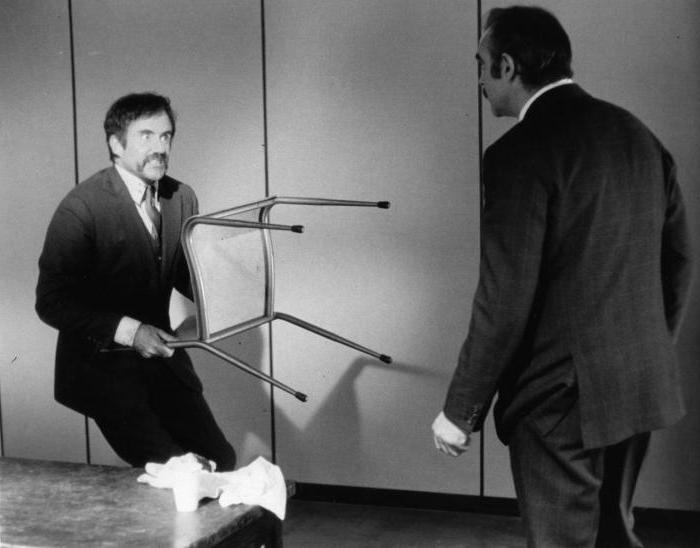Each society has its own norms and rules of behavior. However, alas, they are not always respected. Although a person knows that he will not look the best in the eyes of others, he nevertheless does away with these norms. What behavior usually goes beyond correctness?

Definition of a concept
From childhood we are taught courteous words, the correct course of action. In short, incorrect behavior is impolite, rude. When people say that a person is behaving correctly, the following usually is meant: he is able to predict what consequences these or other actions will bring, what kind of reaction they will cause among those around him. A polite person will not allow himself to humiliate another; however, he treats himself with equal respect.
A vivid example of incorrect behavior can serve as rudeness and name-calling in public transport. A person can be crowded in a crowd, neglecting the lack of space in the bus. If someone tries to make a remark to him, he will immediately respond with an aggressive remark. Another example is the impolite communication of sellers. If for some reason the person behind the counter does not want to serve the buyer, he can express his aggression with the help of intonation. Although he can use literary speech, his behavior can be regarded as incorrect.

The importance of equal communication
Unfortunately, in our time, the ability to behave with dignity and politeness is often perceived as a sign of weakness. Hearing a courteous phrase, for some reason, some people begin to believe that they have superiority over the person who pronounced it, and in response to politeness, they begin to show incorrect behavior. It often happens that those who enjoy the attention of other people, help, or are just lucky for some reason, start to develop an inadequate attitude towards others: they begin to consider themselves higher and more worthy of the others.
However, the truth is that a polite person is not necessarily weak. This indicates that in our time, few are able to communicate on equal terms. And this applies to many public places: shops, transport, and even online forums. Such people, exhibiting incorrect behavior in response to politeness, seek to expand their own personal boundaries at the expense of others.

How to fight
Unfortunately, everyone encounters incorrect behavior. Even the sunniest and most wonderful day can be easily spoiled by someone’s aggression. This situation is not pleasant, and it can happen anywhere, especially in large cities with a high population density. Sometimes it happens that an evil word is experienced even more sharply than a bad act addressed to us. The offender has long forgotten about the situation, and the person who suffered from his words constantly returns to it again and again. However, it is useless to try to find the cause of incorrect behavior in oneself - as a rule, it is rooted in the personality of the aggressor himself. Psychologists say: rudeness is a character trait of those people who suffer from low self-esteem. They are constantly trying to find victims in order to nourish their own miserable dignity at their expense. In dealing with aggressors, psychologists usually recommend that you adhere to the following rules:
- You should remain calm, it is advisable not to raise your voice in response to unethical behavior.
- Even better is to show complete indifference.If there is a verbal skirmish, it is better to refrain from entering into dialogue.
- Everything that was said to you can be turned into a joke - simply snuck in response to the offender.
- Or you can demonstrate irritation with your behavior - one that usually occurs due to a bothersome fly.

Human behavior and factors influencing it
What is human behavior in the broad sense? This term usually designates a particular mode of action, the source and sole author of which is the person himself. Outwardly, it is expressed in certain movements, facial expressions, speech. In science, there are many different classifications of behavior. It is influenced by a variety of internal factors and environmental conditions. The first category includes:
- Genetics (a striking example of the impact of genetics on human behavior is inherited mental disorders. For example, a patient may be aware that his mood swings are the result of an anxiety-depressive disorder, but he will not be able to completely control them without special drugs).
- The state of health (it often happens that a sick person begins to demand more attention, becomes moody).
- Mood, feelings, emotions (for example, being influenced by any socially significant events, a person becomes more energetic, self-confident).
- Physiological state (experiencing thirst or hunger, a person can behave quite differently than at those moments when all his physiological needs are satisfied).

Rudeness on the part of superiors
But how to deal with aggression in the workplace, a special case of which is the incorrect behavior of the leader? Everything is complicated here, because if a person can leave a bus or a store where an amateur is located, he can assert himself at someone else’s expense, then leaving the workplace simply will not work. However, here you can also take certain measures to protect yourself from rudeness on the part of the authorities.
Precautionary measures
An excellent defense against aggressive behavior can be ignoring. What does misconduct on the part of management mean? The boss is exactly the same person as everyone else; and therefore, the motives for his aggression may not differ much from the motives of an impolite passenger in a bus. And like any offender, it is important for him not only to “let off steam”, but also to make sure that he has brought you out of emotional balance. If he sees that it is impossible to get a reaction from you, then soon such a game may bother him. To distract from the flow of aggression against you, take a break at the situation in his office or just start to consider any subject. Also, psychologists do not recommend looking at the raging leader in the eye - if you need to do this, it is better to look at the bridge of the nose.
In addition, if the leader began to be rude, it is best to concentrate on improving the quality of his work. Indeed, in this case, he will not have reasons for claims, and therefore, for emotional attacks, too. Do not look for the reasons for the incorrect behavior of the boss. Most likely, in this situation, little depends on you, and the leader behaves aggressively due to troubles or his own bad manners.